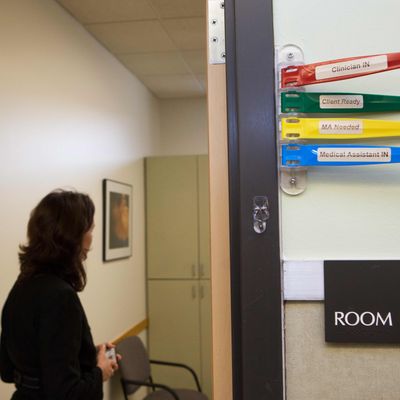
In 2012, 148 women died from complications from pregnancy and childbirth in Texas — nearly double the number the state reported in 2010, according to a study in the September issue of Obstetrics and Gynecology. And although researchers have discovered no causal link for the rapid increase (which they call “puzzling”), it happens to coincide with legislation passed in Texas in 2011 that closed 82 family-planning clinics in the state, one-third of which were Planned Parenthoods.
The closures eliminated 8,000 appointment spots, as well as the last place women could get abortions between Fort Worth and El Paso, according to NPR. (For those unfamiliar with Texas geography, the distance between the two cities is a little more than 600 miles.) Two years after the closures, researchers found that the number of Texas women’s-health program served was cut in half — and low-income women in particular had more unwanted pregnancies and more babies. What’s more, a survey conducted in 2015 found that, since the closures, an estimated 100,000 women in Texas have attempted to self-induce abortion.
In the study, researchers note the closures: “There were some changes in the provision of women’s health services in Texas from 2011 to 2015, including the closing of several women’s health clinics,” they write. But they go on to say that, “In the absence of war, natural disaster, or severe economic upheaval, the doubling of a mortality rate within a two-year period in a state with almost 400,000 annual births seems unlikely.” A future study will look at the state separately and divide its population by race and ethnicity to better explain the “unusual” data.
Thanks to a recent Supreme Court decision, Texas might be able to replenish its depleted number of women’s health clinics, but that will depend on health-care providers challenging the laws already in place in the state and trusting state judges to go along with SCOTUS’s precedent. Then they’ll have to repurchase property, rehire employees, and make sure they have the resources to serve patients — all of which cost money.
“Rebuilding is not something that is going to happen overnight,” Amy Hagstrom Miller, the president of one of the state’s largest abortion providers, Whole Woman’s Health, told ThinkProgress. “A lot of us have gone through a lot of disruption over the last three years, and we don’t necessarily have the resources to say, ‘Boom! I’m going to reopen tomorrow.’”




